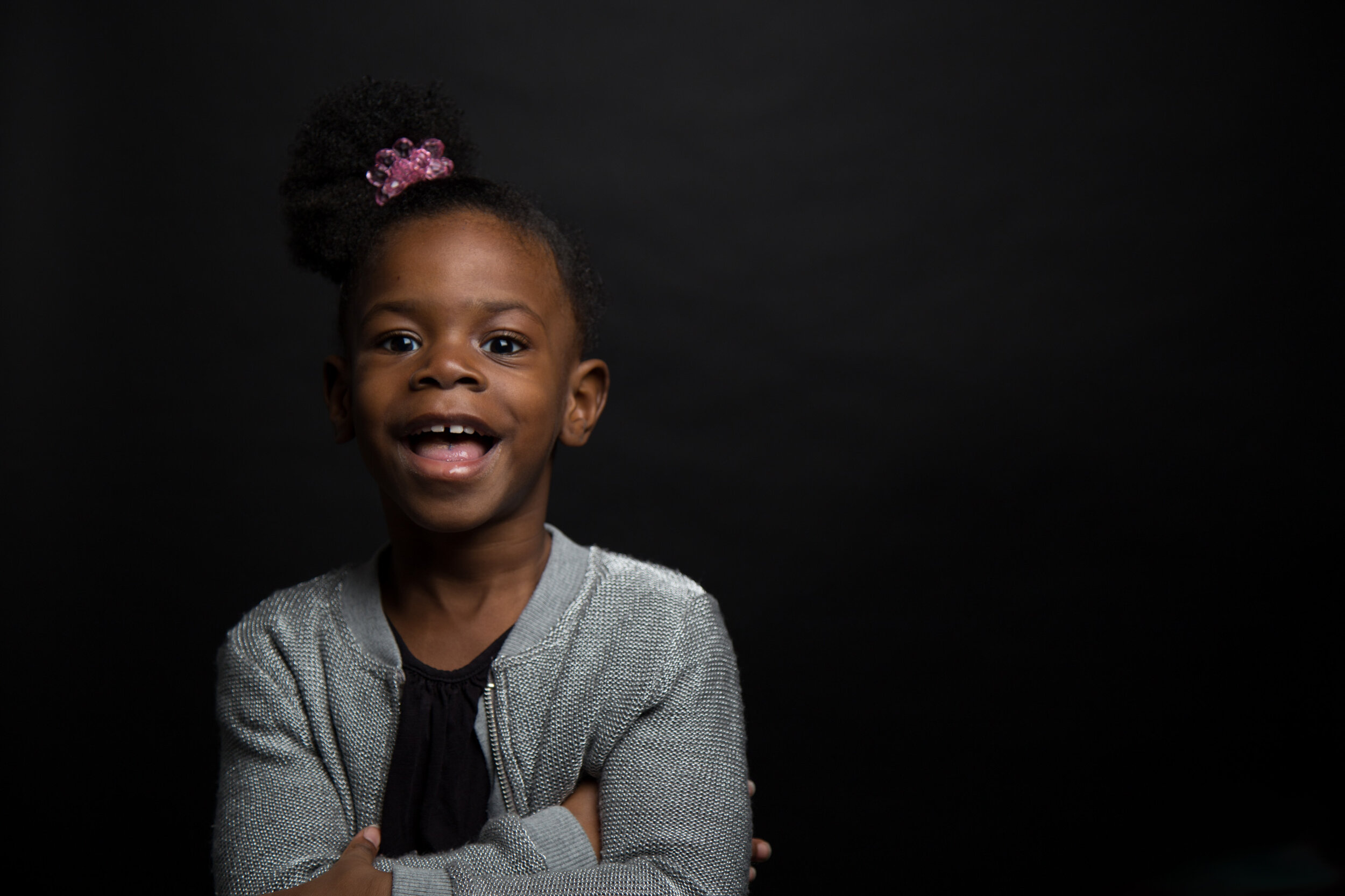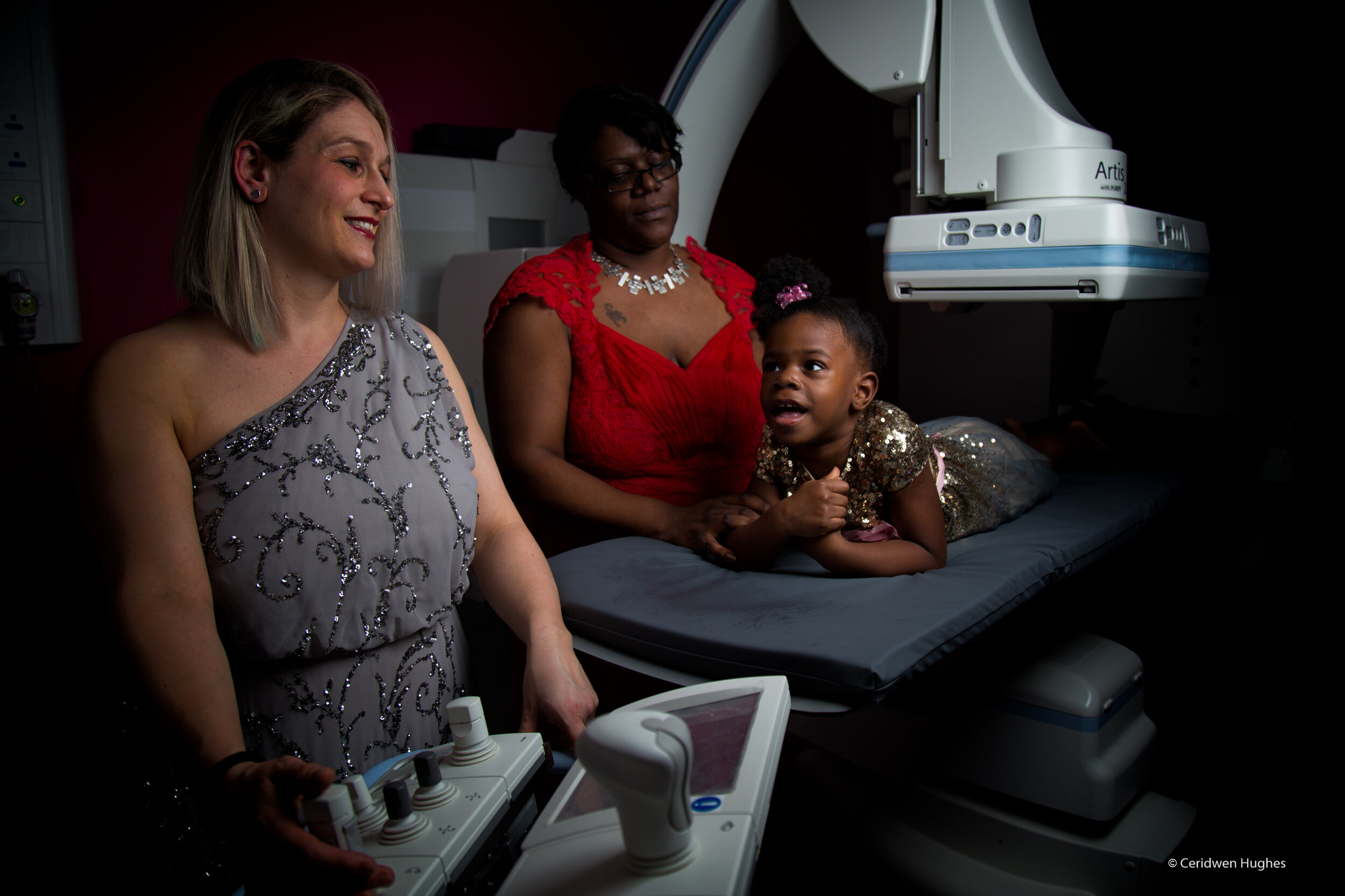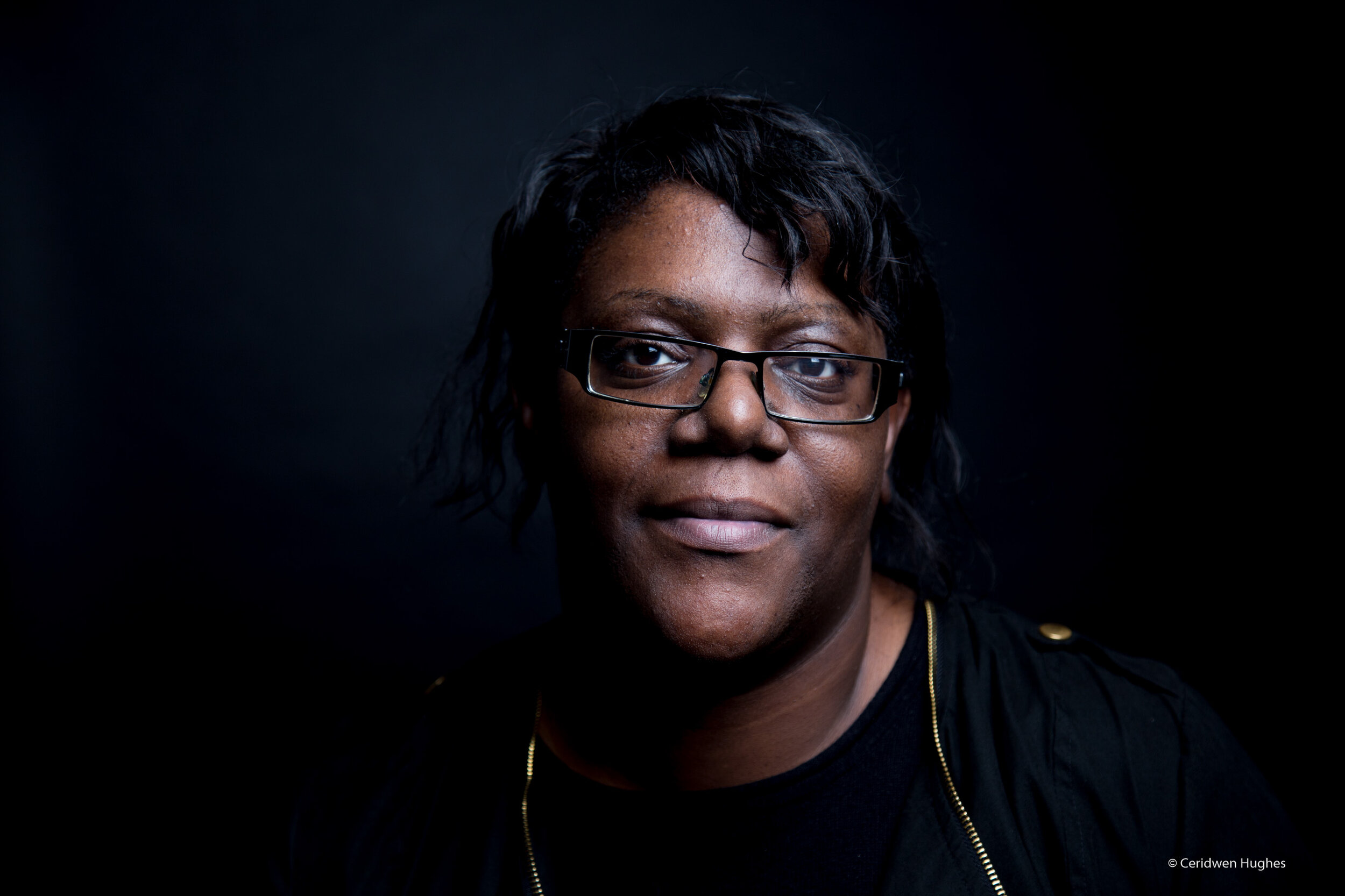AMERAH
Amerah smiling during her photoshoot in 2017 - all photographs by Ceridwen Hughes
We met Amerah and her mother during our Rare Beauty project. Amerah’s mother, Viv, talked to us about their experience of her rare disease.
“Amerah has Beckwith Wiedemann Syndrome which is an overgrowth disorder. It is characterized by a wide spectrum of symptoms that vary from person to person. However, in many individuals, it can include above-average birth weight and increased growth after birth (macrosomia), an unusually large tongue (macroglossia), enlargement of certain internal organs (organomegaly), and abdominal wall defects (omphalocele or umbilical hernia).”
Amerah lying on the bed smiling away in 2017
“She is large for her age and her health issues include being born with a large protruding tongue and she has quite a large umbilical hernia too. The main concern is that they are prone to tumours in their stomach and so she has to be scanned every three months. The risk of tumours goes away when she is about 8 years old but the health risks continue.”
“She has recently had surgery on her tongue so hopefully that should help with that. They will need to operate on her hernia and her overgrowth is fine as I simply buy bigger clothes for her. Since she was born until now it has been difficult because she has had reoccurring chest infections, she has asthma and other issues.”
She was diagnosed after she was born. When I was pregnant they saw a cyst in her stomach and so there were plans put in place to refer her to Birmingham Children’s Hospital (BCH) after the birth. The problem she had when she was born was that she struggled to control her blood sugars and again that is part of the syndrome.”
“Because of the way she looked, i.e. she had the large tongue and blood sugar issues they did some genetics testing. It was only when we were referred to BCH due to problems feeding at four months old that she was diagnosed.”
Amerah's mum
“I had never heard of it before and did not know anyone with a rare disease. We did the usual things and Googled her syndrome and did our own research. We found out that with IVF there is a higher chance of having this condition. The condition does not affect her development but it is the health issues that will cause the problems”.
“It is really important to raise awareness of rare diseases. I have been online and found a lot of sites in America but it was when we came for an outpatients appointment here that a lady came up to me and asked if Amerah has BWS. It turned out her son has it and she recognised the large tongue and so on. She was the first person I met who knew about the condition from first-hand experience.”
“Better awareness in schools and nurseries is important too. I have not put Amerah in nursery because she has speech and language support and I just think mainstream nurseries need more knowledge of rare diseases and the support that children may or may not need.”
“Awareness is important for Amerah herself too. She is big for her age and does things that people assume she shouldn’t be doing because they think she is older than she is. She has only just gone three and so if there was more awareness there would be greater understanding.”
With grateful support from:-
FIND OUT MORE
BECKWITH WIEDEMANN SYNDROME
Beckwith-Wiedemann syndrome (BWS) is a growth disorder that can affect several parts of the body. Babies and children are larger than normal usually until age 8, when growth slows down, resulting in an average height in adults. Symptoms may include one side or area of the body growing more than the other side (asymmetric growth or hemihyperplasia), omphalocele or other abdominal wall defect at birth, low blood sugar (hypoglycemia) in infancy, an abnormally large tongue (macroglossia), abnormally large abdominal organs, creases or pits in the skin near the ears, and kidney abnormalities. Affected children have an increased risk to develop tumors, particularly a rare form of kidney cancer called Wilms tumor, a cancer of muscle tissue called rhabdomyosarcoma, and a form of liver cancer called hepatoblastoma. Some people only have one symptom while others may have many of the symptoms.
To find out more about Beckwith-Wiedemann syndrome, click here.
Source: https://rarediseases.info.nih.gov/diseases/3343/beckwith-wiedemann-syndrome
BECKWITH-WIEDEMANN CHILDREN’S FOUNDATION INT’L (BWCFI)
Beckwith-Wiedemann Children’s Foundation Int’l (BWCFI) has been educating and assisting families diagnosed with BWS since 1998. Their mission is to provide correct information about BWS – at the initial diagnosis and throughout the child’s life.
To find out how BWCFI can support you or your family, click here.
You can read about some of the other people taking part in the Rare Project by clicking here.
Don't forget to visit and 'Like' our Facebook page too so we can keep you up to date with our new rare stories by clicking here.







